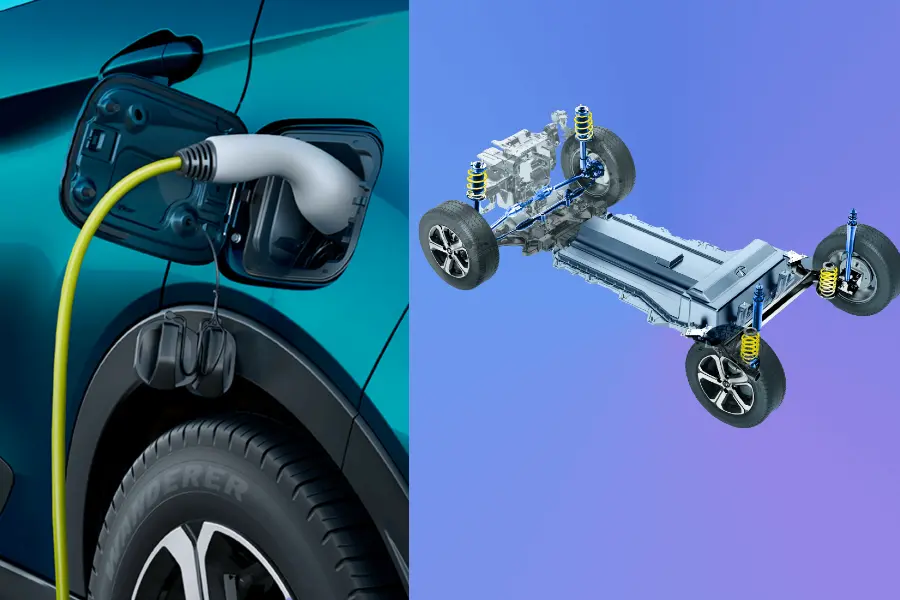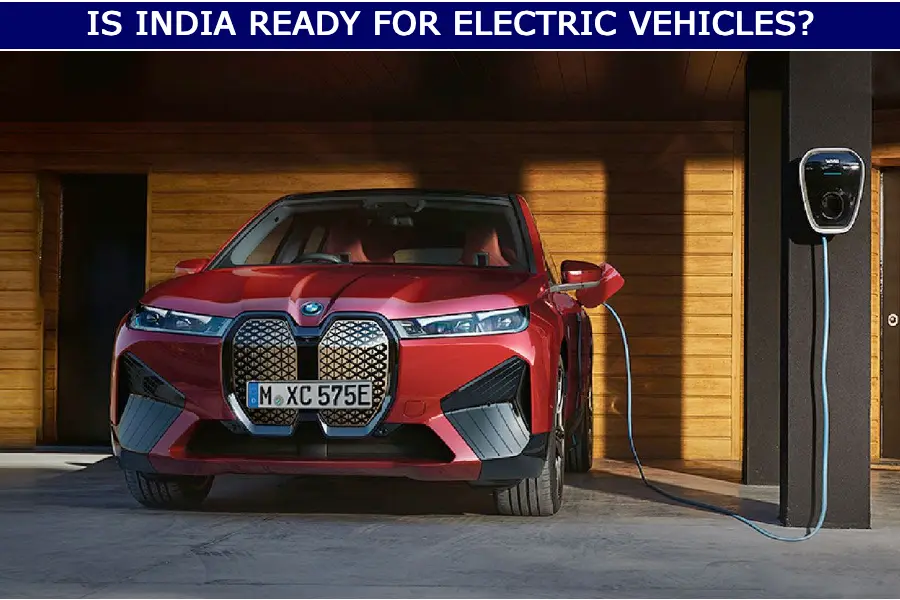With the Governments now pushing the buyers towards electric vehicles and stringent emission norms being introduced, we are witnessing a number of EV launches in India. But, is India ready for electric vehicles?
In recent years, we have seen a strong surge in the demand for electric two-wheelers while the electric four wheels are also getting popular among new car buyers. Likewise, we see a similar trend in the commercial vehicle segment as more buyers are now considering electric three-wheelers over their ICE counterparts. With this sudden spike in the overall electric vehicle sales in the country, many people are still concerned about the overall feasibility and challenges we might face in the near future. With that, we are forced to re-think – Is India ready for electric vehicles?
Improving Charging Infrastructure
For starters, with a clear rise in EV sales in the country, we are also seeing strong development of charging infrastructures. These charging setups are not only being installed and maintained by leading electric vehicle manufacturers like Tata and MG, but are also being set up and run by a number of other companies and organizations.
With increasing charging network and improving road infrastructure, taking an electric vehicle on the highway is less stressful today. The overall wait time and availability of public chargers have also improved in the past and we are expecting a similar trend to continue in the coming months.
Zero-Emissions
Almost all electric vehicles, including bikes, scooters, cars and CVs boast zero-emission figures and are known to be significantly more environmentally friendly than other conventional vehicles. For those wondering, ICE-powered vehicles are one of the major contributors to air pollution in metro cities and are directly responsible for multiple greenhouse emissions.
Electric vehicles are currently being looked upon as healthy alternatives to ICE and can bring a major change in the overall pollution factors. While many might argue that these vehicles also require energy to run which results in in-direct pollution, the experts suggest that most of the power plants are located in less dense areas, hence reducing the overall pollution in the highly-dense and populated cities.
Rising Fuel Costs And Stricter Emission Norms
The demand for fossil fuels is refusing to die but the overall availability still remains a major concern. With only limited production capacity and finite reserves, it is difficult for us to meet the growing demand for fossil fuels. As a result, while we are seeing a major rise in overall fuel costs, long-term sustainability is yet to be addressed.
Electric vehicles, in such cases, are currently being seen as effective and low-cost alternatives to ICE vehicles and offer improved flexibility for manufacturers. Low to nil emissions also help the brands reduce the overall development costs.

What Are The Challenges With Electric Vehicles?
Despite having better practicality and comparatively easier norms, electric vehicles are still expensive to manufacture and may not be as affordable as conventional vehicles in most cases. In addition to this, an electric powertrain is considerably less efficient as more energy is lost due to heat loss, noise, friction, etc.
The overall lifecycle of a battery too is limited and the users might require to replace the battery pack after every few years. The battery pack is one of the most important and expensive parts of the package and increases the overall maintenance costs by a fair margin.
Long Charging Time
Unlike the ICE vehicles, electric vehicles have a long down time due to which they are not very practical for long-distance commute. Charging an electric car using a fast charger takes over one hour in most cases while a standard charger can take up to 10 hours for the same. This not only makes it difficult to plan a long-trip in such a vehicle, but also increases the wait time for other EV users.
Limited Electric Vehicle Range
Despite boasting powerful setup and a stress-free driving experience, most of the electric vehicles struggle with one common issue – limited range. Most of the mass market electric cars offer a real-life range of 250-300 km on a single charge while the two wheelers on the other hand deliver only around 80-100 km. This makes them less practical and the users are required to carefully plan their trips.
Should I Buy An Electric Vehicle In India?
Considering everything which has been discussed so far, electric vehicles come out as practical and environment-friendly alternatives to the conventional ICE vehicles and not only boast superior performance, but are also claimed to offer zero emissions, zero noise pollution, and low operational costs. The EVs also offer a smooth riding experience for the users making them a great choice for anyone looking for a cheap-to-run city commuter.
However, limited range and long charging time in addition to high maintenance costs are a few of the parameters which are yet to be addressed. What makes it even more difficult to own an electric vehicle is not so good charging network in India and limited options available in the market. In this case, it won’t be wrong to conclude that while we are almost ready for electric vehicles in India, we still have that last mile to go which will make it even more easy and practical to shift to EVs.


Pingback: post
Pingback: site
Pingback: ทรัสเบท
Pingback: รับทำ Google Ads